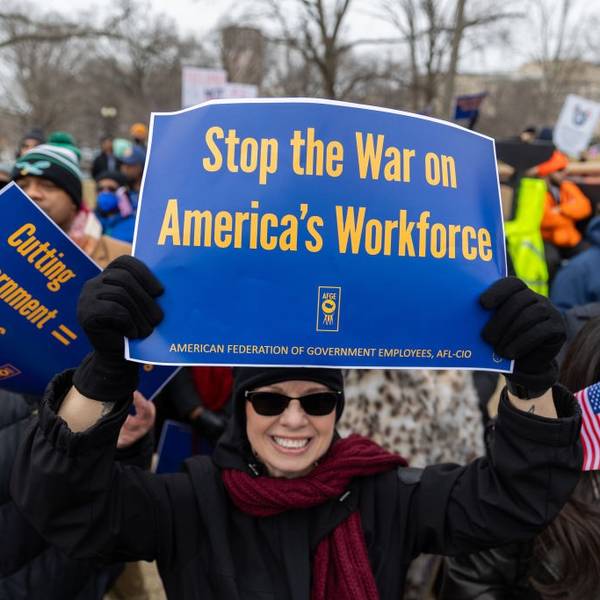No memory of having starred,
Atones for later disregard...
-- Robert Frost, Two Tramps in Mud Time
It's not all taxpayers he doesn't care about. Only the 800,000 federal employees who are not getting paid. As far as the rest of us are concerned, he wants to limit the impact as much as he can. As Russell Voigt, the acting director of the office of Management and Budget said: "The administration is trying to make the shutdown as painless as possible consistent with the law." The effort is not, however, directed at federal employees. Just the rest of us.
In late December, IRS employees received an undated email entitled "IRS Employee Emergency News." It advised employees that "due to the lapse in appropriations most IRS operations are closed. An IRS-wide furlough began on December 22, 2018 for everyone except already identified excepted employees. Non-excepted employees are furloughed and placed in a non-pay and non-duty status until further notice. ...Employees will be given four hours to close out work requirements and receive formal furlough notification." That was followed by the good news that they would receive their Dec. 31 paychecks.
The notice concludes saying that: "As an IRS employee affected by the government shutdown, there can be temporary hardships in meeting your financial obligations. This may occur regardless of when pay resumes for you as a furloughed or excepted employee." The message provides information the employees may wish to share with creditors in trying to figure out how to deal with their inability to make payments. It further provides two phone numbers the employee can call for updates. The recorded message on one of the numbers advises the caller that the shutdown began Dec. 22 and advises the caller that the caller has been placed in "nonpaid and non-duty status." The other number rings with no response.
The 79,000 IRS employees are not, of course, the only federal employees who received the kind of messages IRS employees were given. IRS employees were joined by some 720,000 other employees of the federal government who were told they would not be receiving paychecks during the shutdown.
When proudly saying he would take credit for the shutdown a few days before it actually occurred, Trump was unaware of one effect the shutdown had on non-federal employees. He did not realize that the shutdown did not merely impact federal employees and those with whom the unpaid employees had business dealings. It affected hundreds of millions of people not employed by the federal government. Here's one of the reasons.
At the beginning of every calendar year, millions of taxpayers file tax returns as quickly as possible in order to receive refunds for taxes they overpaid the preceding year. Those refunds are frequently in the thousands of dollars. Recipients count on those refunds to meet other obligations they have. The funds come as delayed Christmas presents for the recipients. How important the refunds are is demonstrated by the statistics.
Between the first of January and the second of March 2018, the IRS paid tax refunds to 48.5 million households. Those refunds were in excess of $147 billion. In 2019 it is estimated that the total amount to be refunded will be in excess of $140 billion.
During past shutdowns, processing and payment of refunds was held up until the shutdown was over. Postponing the infusion of $140 billion into the economy has a profound impact not only on the taxpayer who does not receive the refund, but on those with whom the taxpayer has financial dealings such as merchants, creditors, landlords and the like. Here is one thing Trump knew when he imposed the shutdown for which he was so pleased to take credit. He knew that federal workers would go without pay so long as the shutdown was in place. Here is something he did not know.
He did not know that during past shutdowns when the IRS employees were furloughed, tax refunds were not being processed and the $140 billion to which taxpayers were entitled were not processed. When someone pointed out to him that that was a lot of money to withhold from the citizens entitled to it, he immediately ordered the IRS to immediately bring back on staff, a sufficient number of employees to begin processing claims for refunds even though that had never been done in earlier shutdowns. Ordering IRS workers to begin processing refund claims, albeit without being paid for their work, showed how much Trump cares about taxpayers who need the refunds to take care of their obligations.
Ordering the IRS to begin processing claims was not the only way Trump proved his concern for his subjects. On Jan. 6, 2019, while standing outside the White House, a reporter asked him if he could "relate to the pain of federal workers who can't pay their bills?" He responded: "I can relate. And I'm sure that the people that are toward the receiving end will make adjustments, they always do." He was probably thinking of his own experiences. Companies he controlled went into bankruptcy six times before he became president. As he told the reporter, he made adjustments. That's how he got to where he is now. The rest of us are the poorer for it.




